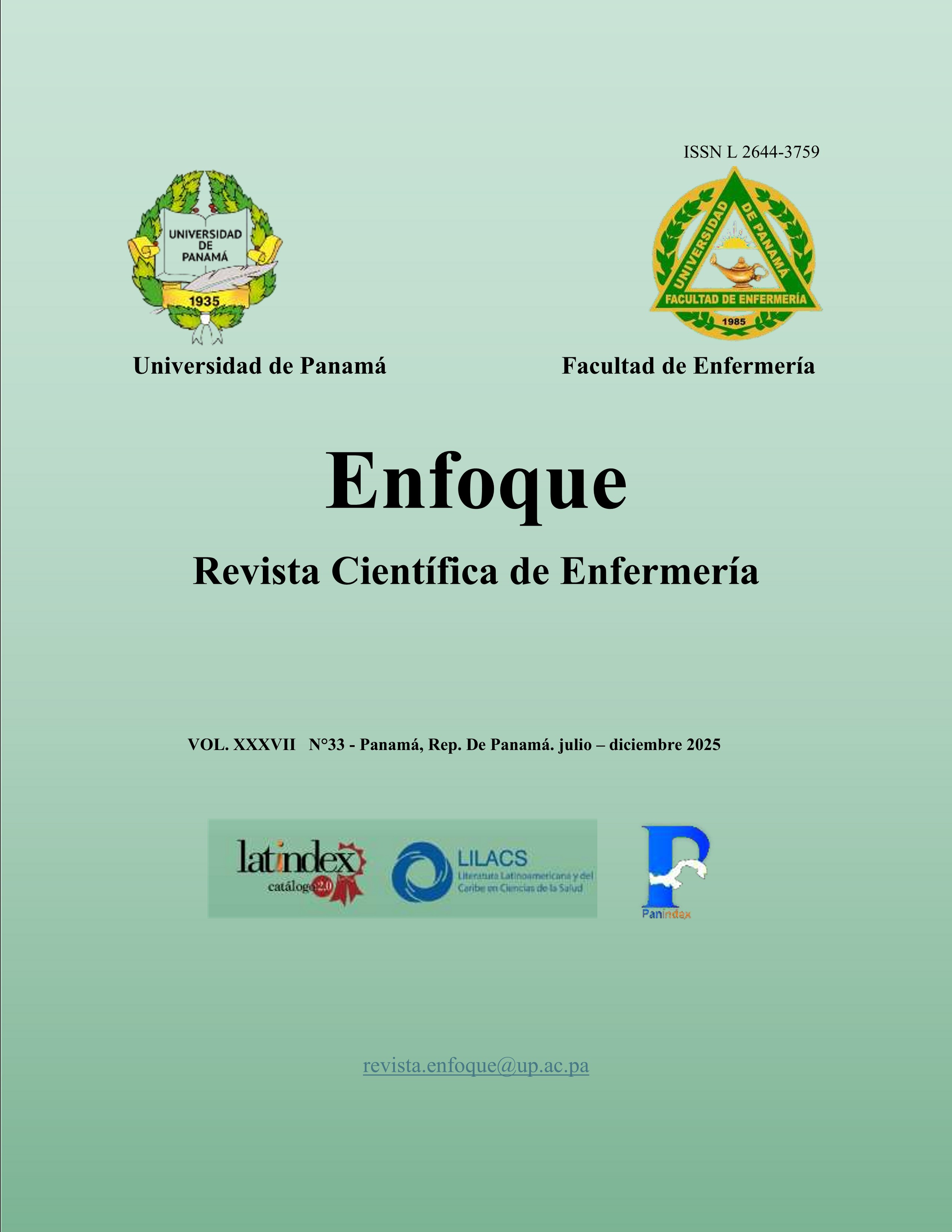

Copyright (c) 2025 Enfoque

This work is licensed under a Creative Commons Attribution-NonCommercial-ShareAlike 4.0 International License.
This descriptive, retrospective, longitudinal study examined the at the Universidad de Panamá from 2016 to 2019. It also classified the programs according to the university’s official list of academic majors.
The population consisted of all official thesis defense records of students who completed either academic or professional master's degrees from all campuses offering these programs. These records are in the official files of the Postgraduate Department of the Vice President's Office for Research and Postgraduate Studies.
Results and Discussion: From 2016 to 2019, 2,752 students completed the study plan and defended their degree work. Of these, 69.4% were female and 30.6% were male, representing colleges from the Main Campus, Regional University Branches, and Institutes. On average, there were 688 submissions per year. Among students in the professional modality, 76.1% completed intervention projects, 1% took general knowledge exams, and 0.7% completed professional practice. In the academic modality, 22.2% of students completed a thesis.
The students who defended their degree work came from different disciplines of the four areas of knowledge established at the Universidad de Panama: 54.5% from Social, Humanistic, and Cultural Sciences; 20% from Business and Administrative Sciences; 20.1% from Health Sciences; and 5.4% from Natural, Exact and Technological Sciences.
This successful completion allowed us to observe the overall completion efficiency of master's degree programs; however, to determine the exact approximate completion efficiency of each program, it is necessary to establish a digital base that tracks each cohort, starting from enrollment to graduation.
This process requires the coordination of each program administrator and the academic administrative offices of the Vice President's Office for Research and Graduate Studies. Implementing this would involve applying objective and transparent self-evaluation processes to ensure the quality of graduate education at the Universidad de Panama.